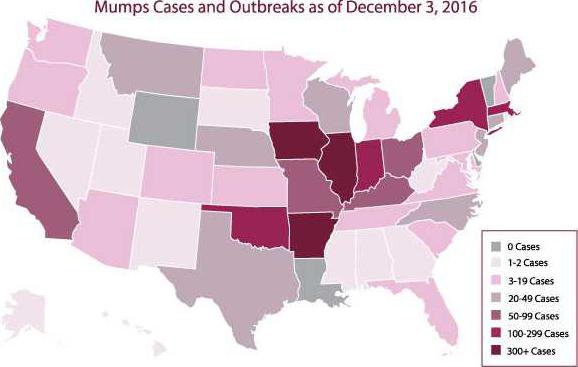Protect your child with mumps vaccine
According to the Centers for Disease Control, the mumps vaccine is usually given as part of a combination vaccine that protects against three diseases: measles, mumps, and rubella (MMR). The MMR vaccine is safe and effective. Most children don’t have any side effects from the vaccine. The side effects that do occur are usually very mild, such as a fever or rash.
Children should get two doses of MMR vaccine:
• The first dose at 12 through 15 months of age, and
• The second dose at 4 through 6 years of age.
The CDC notes that a doctor may also offer the MMRV vaccine, a combination vaccine that protects against four diseases: measles, mumps, rubella, and varicella (chickenpox).
Mumps outbreaks can still occur in highly vaccinated U.S. communities, particularly in close-contact settings such as schools, colleges, and camps. However, high vaccination coverage helps to limit the size, duration, and spread of mumps outbreaks, making it that much more important to get your child vaccinated on schedule.
Anyone born during or after 1957, who has never had mumps or has never been vaccinated, is at risk for mumps. They should get at least one dose of the MMR vaccine. Two doses are recommended for adults at higher risk, such as students in college, trade school, and training programs; international travelers; and healthcare professionals.
The mumps can be serious.
In most children, mumps is pretty mild. But it can cause serious, long-lasting problems including encephalitis (swelling of the brain), meningitis (swelling of the tissue covering the brain and spinal cord), loss of hearing (temporary and permanent), orchitis (swelling of the testicles) in males who have reached puberty, oophoritis (swelling of the ovaries) and/or mastitis (swelling of the breasts) in females who have reached puberty. In rare cases, mumps is deadly.
Most folks know we are in the flu season. However, there is another illness making the rounds now as well.
There have been numerous outbreaks of mumps across the county and around the state, said Barton County Health Director Shelly Schneider said.
“Mumps is in Kansas,” she said. However, there have been no laboratory-confirmed cases in Barton County as of yet.
Even though not seen locally, the Kansas Department of Health and Environment has also reported large outbreaks of mumps in many states this year, and outbreaks are ongoing in the nearby states of Arkansas (approximately 2,000 cases) and Missouri (approximately 200 cases, most associated with the University of Missouri in Columbia, Missouri).
Many individuals have been infected despite being immunized with the recommended two doses of the measles, mumps, and rubella (MMR) vaccine. Outbreaks can still occur in highly vaccinated communities, particularly in close-contact settings.
The KDHE, the Lawrence-Douglas County Health Department, and the Johnson County Department of Health and Environment are investigating a cluster of suspect mumps cases associated with the University of Kansas in Lawrence. At this time, no KU cases have been confirmed.
However, Schneider said that given the ongoing outbreaks on college campuses in nearby states, and the possibility that infected students may visit Kansas during the winter break, it is important to prepare for the potential of mumps outbreaks in Kansas. “Health care providers across Kansas should be vigilant in identifying, testing, and reporting patients with suspected mumps.”
A recent U.S. Centers for Disease Control and Prevention report shows that mumps are at a 10-year high. As of November, 45 states and the District of Columbia had reported a total of 2,879 mumps infections - more than double the mumps cases reported in 2015.
Mumps is a contagious disease caused by a virus. It typically starts with a few days of fever, headache, muscle aches, tiredness, and loss of appetite, followed by swollen salivary glands. You can protect yourself and your family against mumps with vaccination.
The vaccine is the best way to protect a child against mumps which can cause serious complications, Schneider said. “Talk to your healthcare professional or check your child’s immunization records to ensure mumps vaccine is up to date.”
Anyone who has not had mumps or been vaccinated can get the disease, Schneider said. There is no treatment for mumps, and it can cause long-term health problems.
In addition to the vaccine, Schneider said good, old common sense is needed. “Just good hand washing and staying home when sick can prevent spread of mumps and other communicable diseases.”





